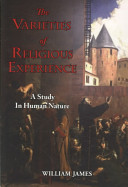Distinguishing Personal Religion from Institutionalized Religion
In critically judging of the value of religious phenomena, it is very important to insist on the distinction between religion as an individual personal function, and religion as an institutional, corporate, or tribal product. I drew this distinction, you may remember, in my second lecture. The word “religion,” as ordinarily used, is equivocal. A survey of history shows us that, as a rule, religious geniuses attract disciples, and produce groups of sympathizers. When these groups get strong enough to “organize” themselves, they become ecclesiastical institutions with corporate ambitions of their own. The spirit of politics and the lust of dogmatic rule are then apt to enter and to contaminate the originally innocent thing; so that when we hear the word “religion” nowadays, we think inevitably of some “church” or other; and to some persons the word “church” suggests so much hypocrisy and tyranny and meanness and tenacity of superstition that in a wholesale undiscerning way they glory in saying that they are “down” on religion altogether. Even we who belong to churches do not exempt other churches than our own from the general condemnation.
Notes:
Two very different things of different merits.
Folksonomies: religion
Taxonomies:
/religion and spirituality (0.804975)
/religion and spirituality/christianity/catholicism (0.318298)
/religion and spirituality/christianity/orthodoxy (0.316847)
Keywords:
individual personal function (0.913463 (neutral:0.000000)), originally innocent thing (0.900536 (neutral:0.000000)), wholesale undiscerning way (0.809569 (positive:0.252363)), religion (0.757216 (positive:0.369602)), different merits (0.600904 (negative:-0.213596)), religious phenomena (0.589107 (negative:-0.239130)), tribal product (0.574651 (neutral:0.000000)), dogmatic rule (0.563652 (negative:-0.562245)), Institutionalized Religion (0.562305 (negative:-0.213596)), general condemnation (0.547396 (negative:-0.437387)), corporate ambitions (0.540866 (positive:0.327459)), Personal Religion (0.538400 (negative:-0.213596)), history shows (0.534948 (negative:-0.317332)), ecclesiastical institutions (0.532900 (positive:0.327459)), distinction (0.373438 (positive:0.583198)), word (0.352606 (neutral:0.000000)), groups (0.265923 (positive:0.519399)), sympathizers (0.239475 (neutral:0.000000)), churches (0.238516 (neutral:0.000000)), church (0.236617 (neutral:0.000000)), meanness (0.234417 (negative:-0.328453)), geniuses (0.219111 (positive:0.354827)), tyranny (0.209155 (negative:-0.328453)), hypocrisy (0.208275 (negative:-0.328453)), tenacity (0.206249 (positive:0.252363)), lust (0.202932 (negative:-0.562245)), superstition (0.202722 (positive:0.252363))
Concepts:
Religion (0.944088): dbpedia | freebase | opencyc
Law (0.767421): dbpedia | freebase | opencyc
Sociology (0.708484): dbpedia | freebase | opencyc
Politics (0.669693): dbpedia | freebase | opencyc
William James (0.646163): dbpedia | freebase | opencyc | yago
Society (0.634764): dbpedia | freebase | opencyc
Dogma (0.622988): dbpedia | freebase
Religious studies (0.598066): dbpedia | freebase | yago





